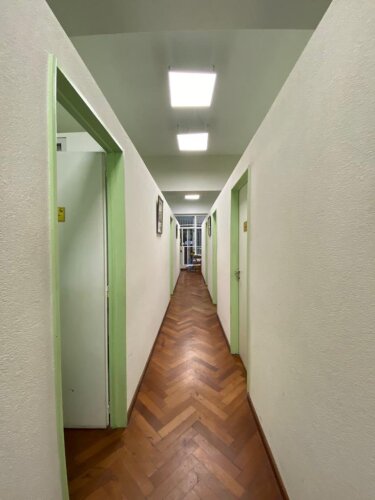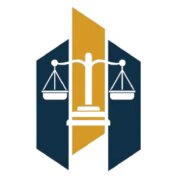Best Civil Rights Lawyers in Argentina
Share your needs with us, get contacted by law firms.
Free. Takes 2 min.
Or refine your search by selecting a city:
List of the best lawyers in Argentina
About Civil Rights Law in Argentina
In Argentina, civil rights are enshrined in the Constitution and various national laws that seek to protect individuals from discrimination and ensure equality before the law. The backdrop for civil rights law in Argentina includes a history of human rights activism, particularly following the military dictatorship of 1976-1983, which left a lasting impact on the legal landscape. Modern civil rights in Argentina cover a wide range of issues, including race, gender, sexual orientation, religion, and disability rights, aiming to promote an equitable society.
Why You May Need a Lawyer
There are several scenarios where you might need legal assistance in civil rights matters. People may need a lawyer if they experience discrimination or harassment at work due to their race, gender, or sexual orientation. Other situations include facing biased treatment when accessing public services, or encountering issues of police misconduct. Legal advice is often essential in understanding your rights and exploring potential legal remedies in these situations.
Local Laws Overview
Argentina has a robust legal framework for civil rights protection, relying on both national legislation and international human rights treaties. Key laws include the Anti-discrimination Law No. 23,592, which prohibits discriminatory conducts, and the Gender Identity Law, which is recognized for its progressive stance in granting rights to transgender individuals. Additionally, the National Institute Against Discrimination, Xenophobia, and Racism (INADI) plays a crucial role in enforcing these legal protections.
Frequently Asked Questions
What constitutes discrimination under Argentine law?
Discrimination occurs when a person is treated unequally based on specific attributes, such as race, gender, sexual orientation, or religion, affecting their ability to enjoy equal rights and opportunities.
How can I prove discrimination in Argentina?
Evidence such as witness testimony, documentation of communications (emails, messages), and historical evidence of similar incidents can support discrimination claims. Legal guidance is often necessary to effectively present this evidence.
What are my rights if I face discrimination at work?
If you experience discrimination at work, Argentine law allows you to file a complaint with the employer or relevant labor authority. Legal action can be pursued if informal resolution is ineffective.
Can I file a civil rights complaint on my own?
While it's possible to file a complaint without a lawyer, legal representation is recommended to navigate complex legal procedures and improve the likelihood of a favorable outcome.
What role does INADI play in civil rights protection?
INADI is a governmental body that promotes awareness and combat discrimination. It receives complaints, conducts investigations, and provides recommendations and mediation services to resolve issues.
Are there legal protections against hate speech in Argentina?
Yes, Argentine law criminalizes hate speech, and individuals can face legal consequences if they promote violence or hatred against a specific group.
How does Argentina address gender identity rights?
Argentina's Gender Identity Law allows individuals to change their name and gender on official documents without undergoing surgery, reinforcing legal recognition of gender identity.
Is same-sex marriage recognized in Argentina?
Yes, same-sex marriage has been legal in Argentina since 2010, making it the first country in Latin America to legalize marriage equality.
What should I do if my rights are violated by a police officer?
You should report the incident to the relevant police oversight authorities and seek legal advice to ensure a proper investigation is conducted.
How can international treaties impact civil rights in Argentina?
Argentina is a signatory to various international human rights treaties, which are incorporated into national law and strengthen the legal framework protecting civil rights.
Additional Resources
For further assistance, consider reaching out to the following resources: National Institute Against Discrimination, Xenophobia, and Racism (INADI), the Public Defender's Office, local NGOs specializing in human rights, and bar associations that offer pro bono legal services.
Next Steps
If you believe you need legal assistance with civil rights issues in Argentina, start by consulting with a qualified lawyer specializing in civil rights. Document all relevant information about your case, such as dates, interactions, and any evidence. You can also contact INADI for guidance or to file an initial complaint. Consider reaching out to local organizations for additional support and resources, especially if cost is a concern.
Lawzana helps you find the best lawyers and law firms in Argentina through a curated and pre-screened list of qualified legal professionals. Our platform offers rankings and detailed profiles of attorneys and law firms, allowing you to compare based on practice areas, including Civil Rights, experience, and client feedback.
Each profile includes a description of the firm's areas of practice, client reviews, team members and partners, year of establishment, spoken languages, office locations, contact information, social media presence, and any published articles or resources. Most firms on our platform speak English and are experienced in both local and international legal matters.
Get a quote from top-rated law firms in Argentina — quickly, securely, and without unnecessary hassle.
Disclaimer:
The information provided on this page is for general informational purposes only and does not constitute legal advice. While we strive to ensure the accuracy and relevance of the content, legal information may change over time, and interpretations of the law can vary. You should always consult with a qualified legal professional for advice specific to your situation.
We disclaim all liability for actions taken or not taken based on the content of this page. If you believe any information is incorrect or outdated, please contact us, and we will review and update it where appropriate.
Browse civil rights law firms by city in Argentina
Refine your search by selecting a city.














